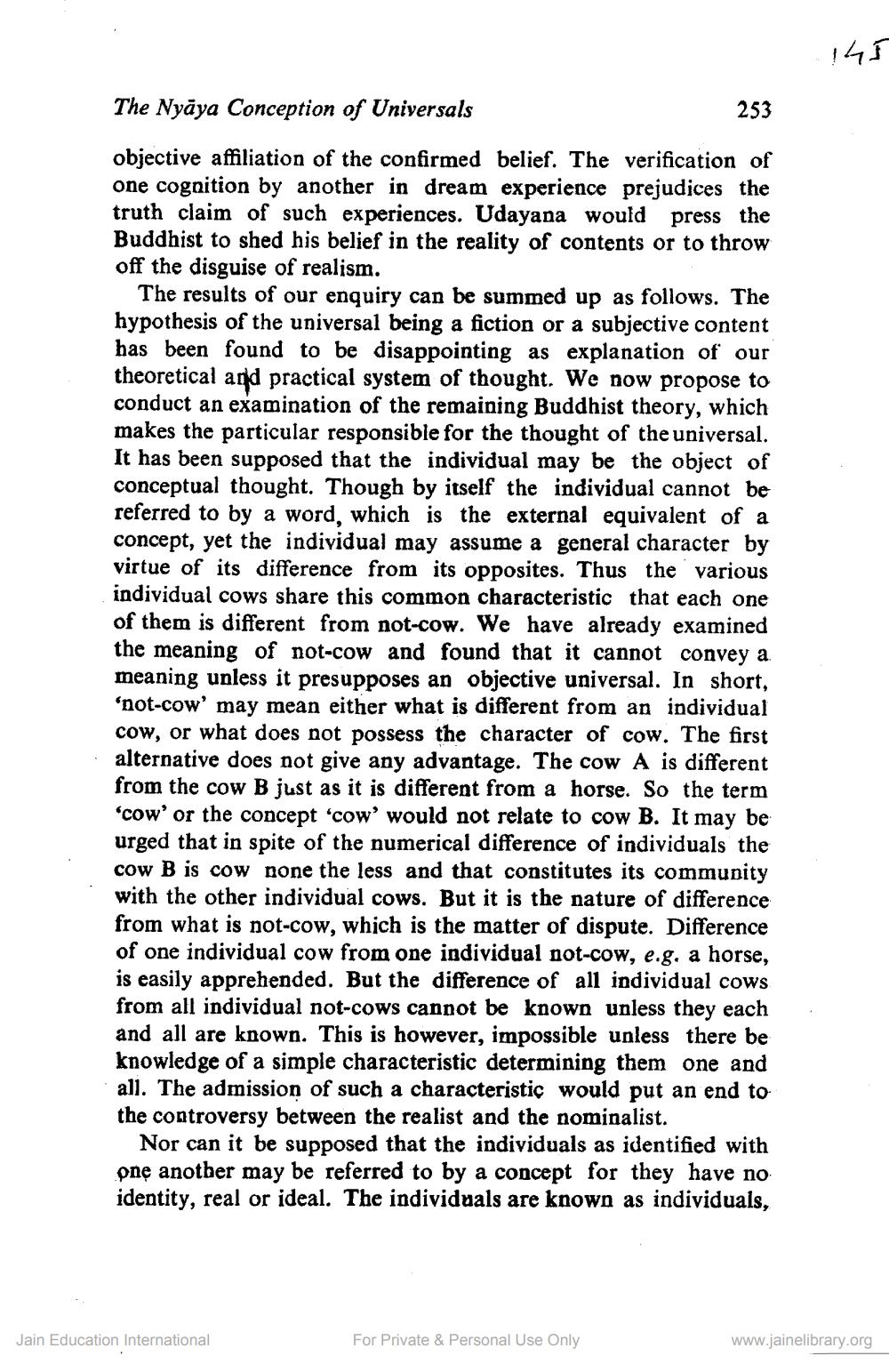________________
145
The Nyāya Conception of Universals
253
objective affiliation of the confirmed belief. The verification of one cognition by another in dream experience prejudices the truth claim of such experiences. Udayana would press the Buddhist to shed his belief in the reality of contents or to throw off the disguise of realism.
The results of our enquiry can be summed up as follows. The hypothesis of the universal being a fiction or a subjective content has been found to be disappointing as explanation of our theoretical and practical system of thought. We now propose to conduct an examination of the remaining Buddhist theory, which makes the particular responsible for the thought of the univer It has been supposed that the individual may be the object of conceptual thought. Though by itself the individual cannot be referred to by a word, which is the external equivalent of a concept, yet the individual may assume a general character by virtue of its difference from its opposites. Thus the various individual cows share this common characteristic that each one of them is different from not-cow. We have already examined the meaning of not-cow and found that it cannot convey a. meaning unless it presupposes an objective universal. In short, 'not-cow may mean either what is different from an individual cow, or what does not possess the character of cow. The first alternative does not give any advantage. The cow A is different from the cow B just as it is different from a horse. So the term 'cow' or the concept "cow' would not relate to cow B. It may be urged that in spite of the numerical difference of individuals the cow B is cow none the less and that constitutes its community with the other individual cows. But it is the nature of difference from what is not-cow, which is the matter of dispute. Difference of one individual cow from one individual not-cow, e.g, a horse, is easily apprehended. But the difference of all individual cows from all individual not-cows cannot be known unless they each and all are known. This is however, impossible unless there be knowledge of a simple characteristic determining them one and all. The admission of such a characteristic would put an end to the controversy between the realist and the nominalist.
Nor can it be supposed that the individuals as identified with one another may be referred to by a concept for they have no identity, real or ideal. The individuals are known as individuals,
Jain Education International
For Private & Personal Use Only
www.jainelibrary.org




